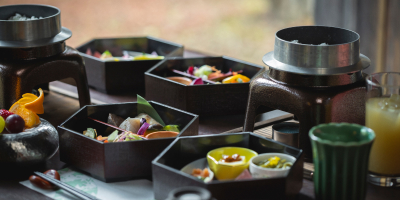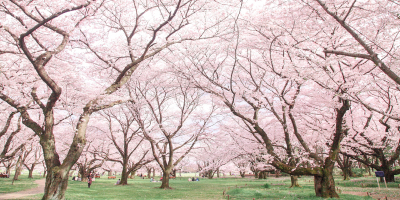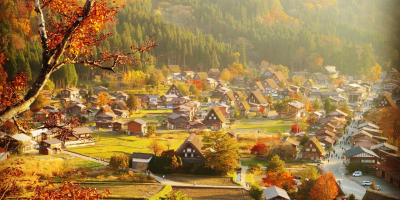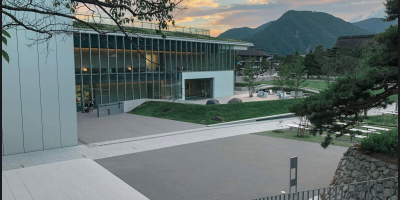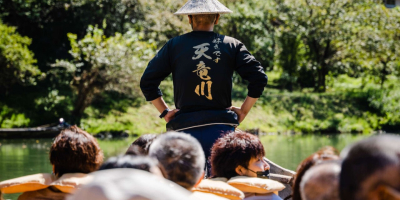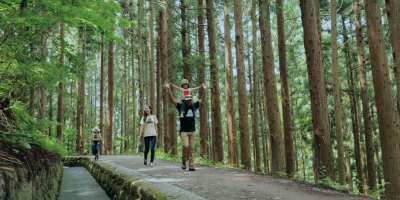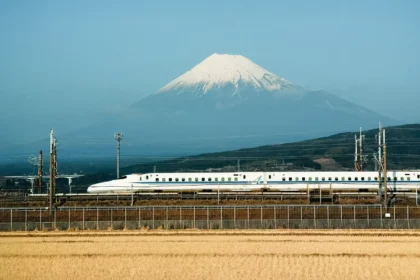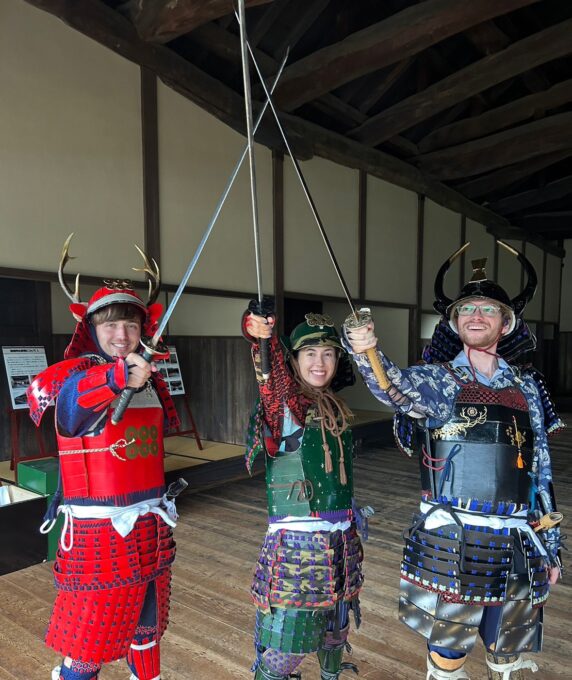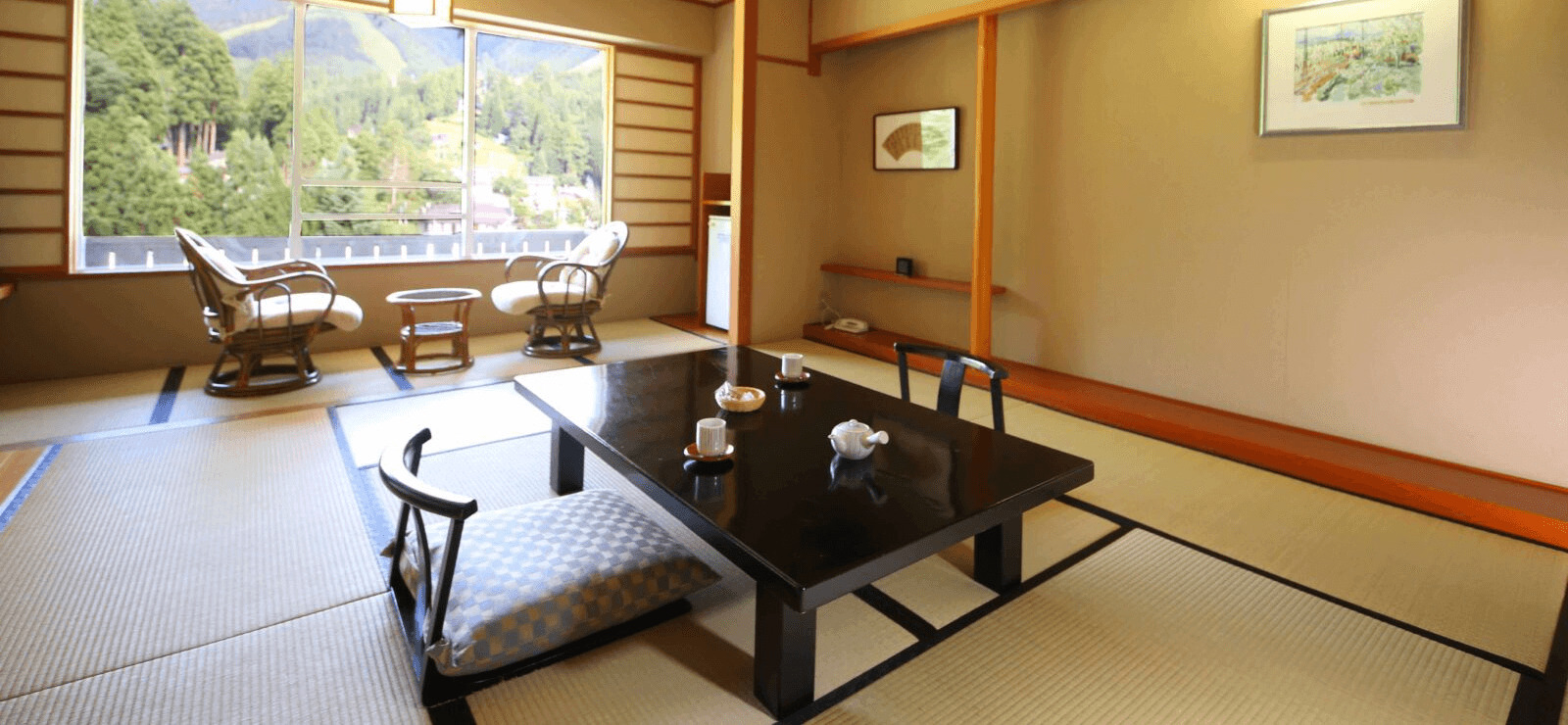
When planning your visit to Japan, understanding your accommodation options is essential to ensuring a comfortable and rewarding stay. You’ll find all the usual accommodation options here in terms of large hotels along with many options specific to Japan. For first-time visitors, it’s worth checking your options and what to expect, to avoid any surprises upon check-in.
On this page you will find the following information:
Meals: Including Dinner & Breakfast
Bedding: ‘Futon’ vs Western-style
Additional Charges / Surcharges
Booking Through Airbnb: A Word of Caution
For further essential travel information, see our ‘Plan Your Visit’ main page.
TYPES OF ACCOMMODATION
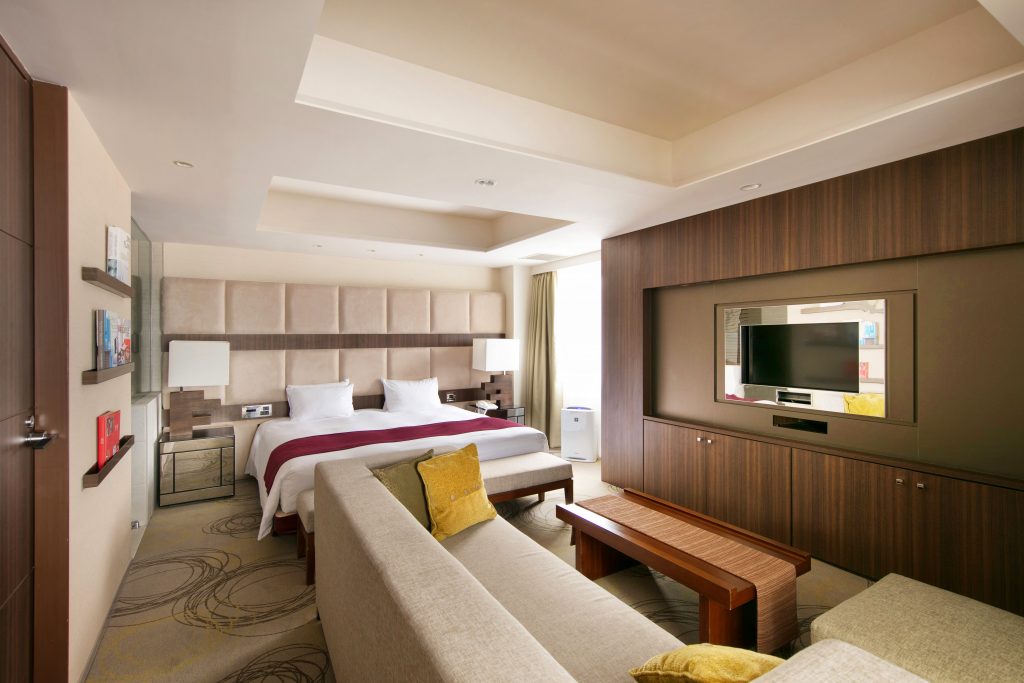
International visitors to Japan will be familiar with many types of accommodation including large Western-style hotels, business hotels, backpackers hostels and the increasingly popular option of private accommodation through websites such as Airbnb.
In addition to the styles listed above, Japan also offers other more traditional accommodation options such as ‘ryokan’, ‘minshuku’ and ‘shukubo.’ Our ‘Choosing Your Accommodation’ page lists the main types of accommodation in Japan, including the positives of each, what to expect and who they suit-best. The page also includes a handy FAQ of questions to ask before booking your stay.
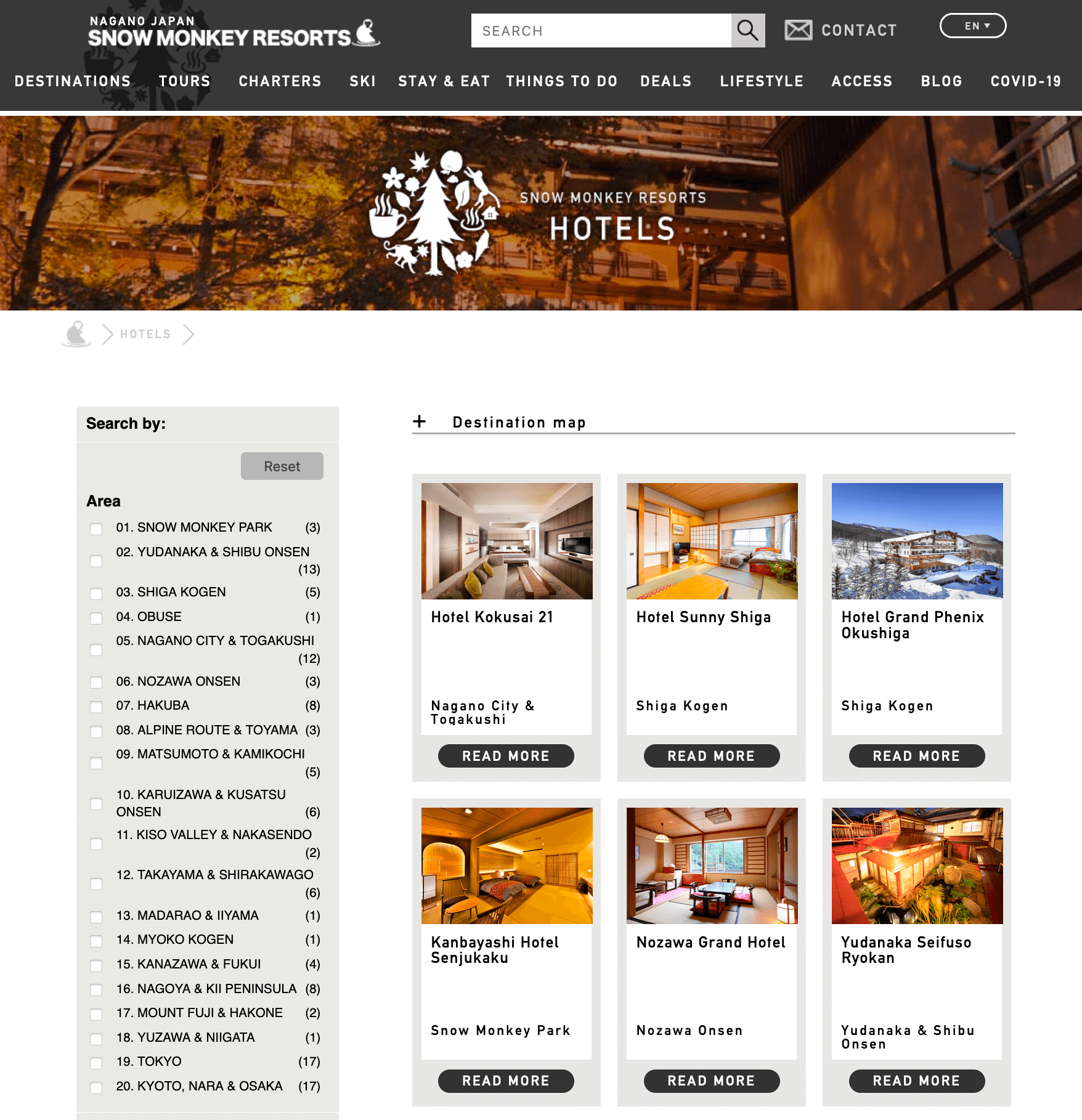
Our 'Hotels' page includes recommendations of some of the best accommodation in Central Japan - including hotels, guesthouses and self-contained accommodation at the Nagano ski resorts - along with hotel pages for major cities including Tokyo, Nagoya, Kyoto, Osaka, and lots of other great destinations around Japan.
TYPES OF PAYMENT

When staying at large to mid-sized hotels i.e. Western-style hotels, you will most likely be able to pay by cash or card including overseas-issued credit cards. However, many family-run and rural/regional guesthouses may only accept payment in cash. So when booking directly with your accommodation or selecting the option to pay in-person, make sure to confirm what payment methods they accept.
MEALS: INCLUDING DINNER & BREAKFAST
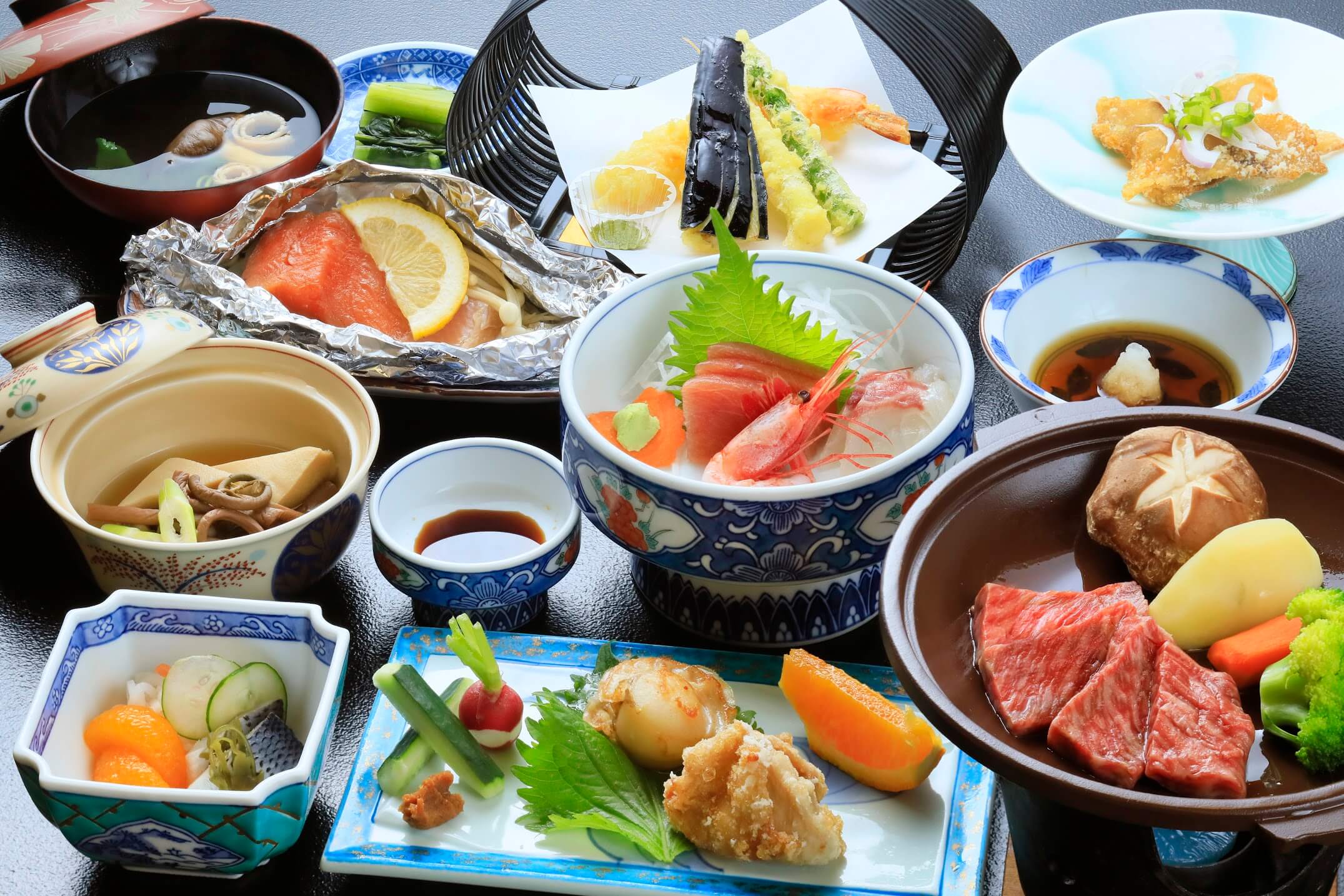
When hotels and guesthouses in Japan provide dinner and/or breakfast, it is almost always included in your room price. When deciding whether to book accommodations which include meals or not, we recommend considering the following:
The type of food: Large hotels are likely to offer a range of food including both Japanese and international cuisine. Often served as buffet, guests can select what they want to eat--with many large hotels in the big cities catering to a range of dietary needs including halal food.
However, as you move away from the large hotels, especially as you move outside of the large cities, expect the range of food to be much more restricted. If you are booking a traditional guesthouse such as a ‘ryokan’ or ‘minshuku’ the menu is likely to be completely Japanese and relatively fixed.
Some guesthouses may offer the choice of a Japanese or Western breakfast however this certainly shouldn’t be expected and many will only offer a traditional Japanese breakfast including rice, dried fish, pickled vegetables, etc. This won’t be to everyone’s liking so make sure to check first before agreeing to include your meals.
The location of your accommodation: Including meals with your accommodation may be a very good option – or in some cases the only option – depending where you are traveling. When staying in large cities such as Tokyo, you are spoiled for choice when it comes to food so there’s no pressing need to include meals with your accommodation.* However, if you are booking accommodation in a rural/regional area, be careful to check what options you have to eat outside of your guesthouse. In many cases, your guesthouse might be the only place to eat dinner and breakfast so it would then be a no-brainer to include those options.
Dietary needs & allergies: Large hotels located in big cities will have the greatest awareness of common dietary needs including vegetarian, vegan, gluten-free, halal, and other common dietary restrictions. They are also the most likely to be able to modify their menu for you.
As you move away from the large hotels and most populous cities, that awareness will quickly become less and if you are booking a rural/regional, family-run guesthouse, the owners may not be able to cater to your needs. If you have a specific dietary need that must be catered to, always contact the hotel or guesthouse in advance to check whether they can accommodate you.
*It’s worth noting that Japanese cafes and restaurants typically open later than in other countries so if you need an early breakfast, eating at your hotel might be your best option, even in Tokyo.
BEDDING: ‘FUTON’ vs WESTERN-STYLE
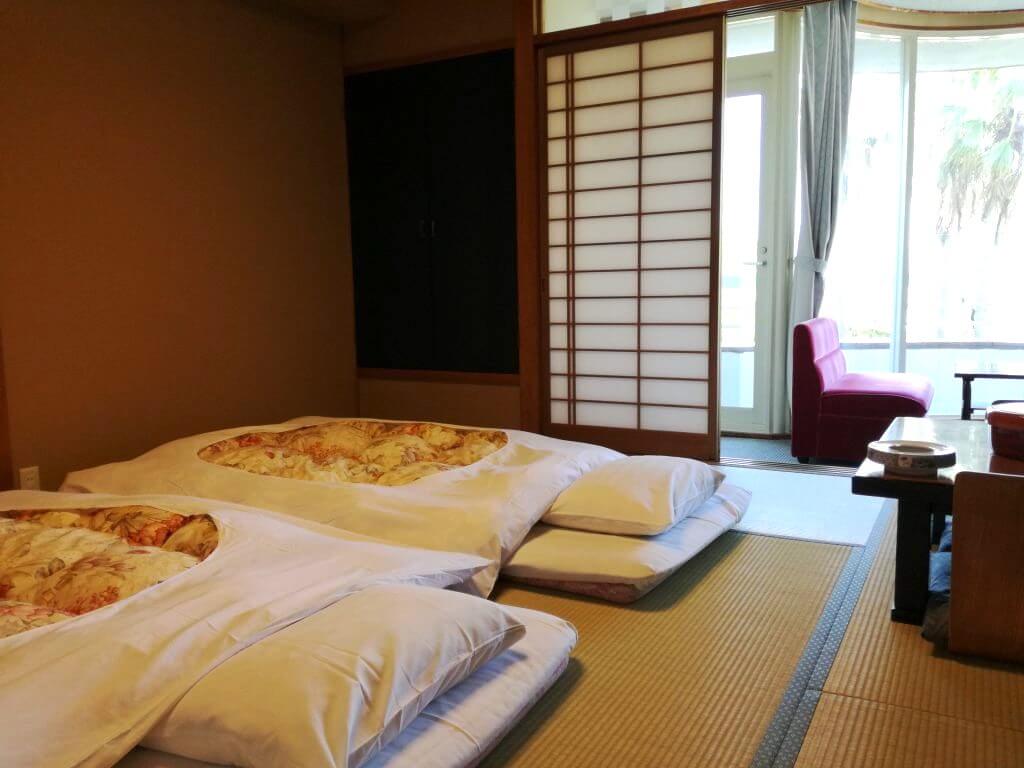
When booking your room, make sure to confirm the type of bedding included. Traditionally, Japanese sleep on mattresses called ‘futon’ that are laid-out each night directly onto the floor, typically ‘tatami’ (woven straw matting).
This is typically done for you by staff and packed-up again for you in the morning, For many international visitors, sleeping on a futon will be totally fine and all part of the experience, while for others, especially those with back problems or who struggle to get up from the floor, a futon could cause a lot of discomfort.
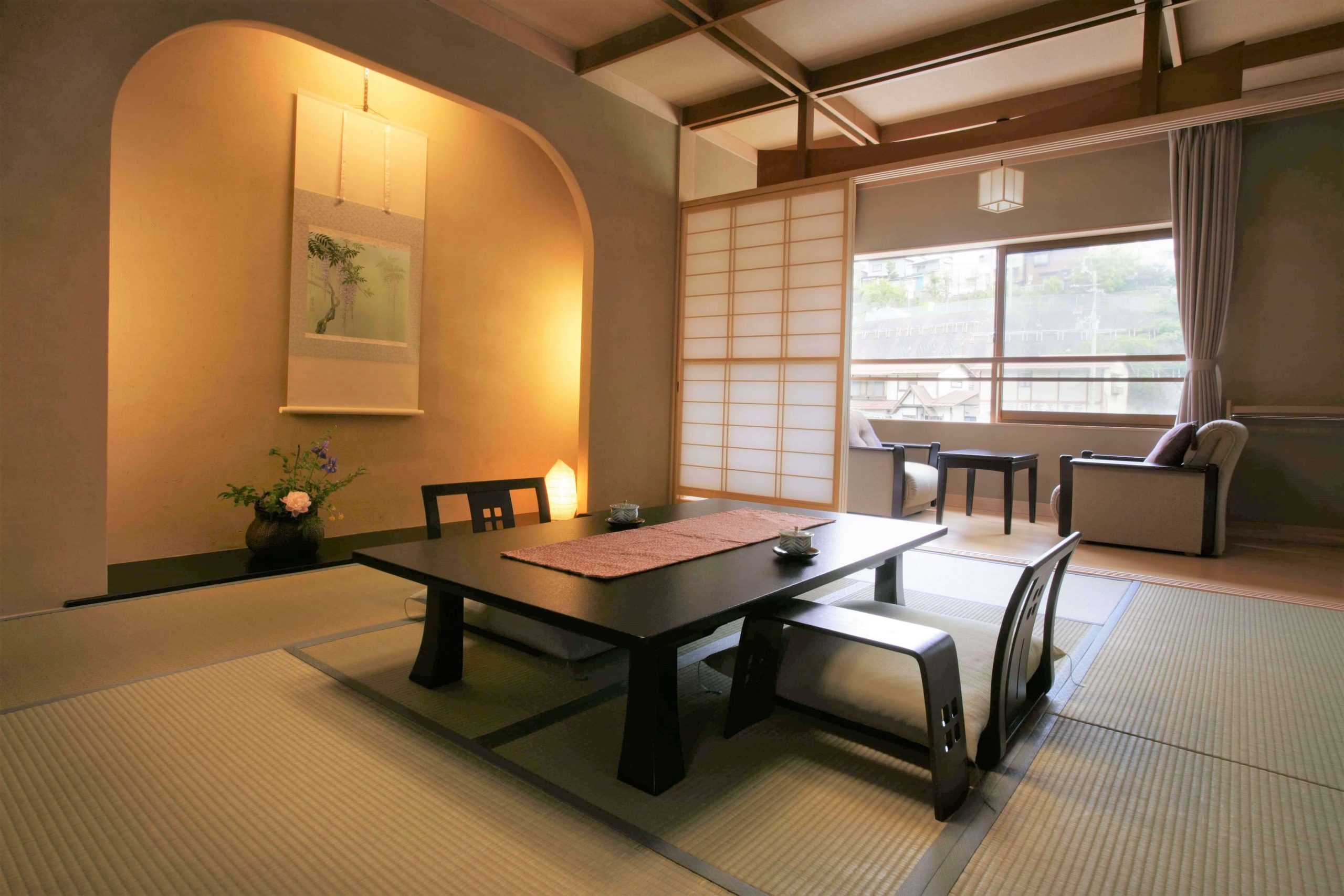
Large hotels and business hotels will almost certainly include Western-style bedding however may also offer some rooms with traditional futon bedding catering to the domestic market. When booking small guesthouses, this is even more likely. Traditional ‘ryokan’, ‘minshuku’ and ‘shukubo’ are almost certain to provide futon bedding in their rooms, still include traditional/low furniture and may well require guests to share bathroom facilities – as discussed below. Some ‘ryokan’ will have rooms with Western-style bedding but they may be notably more expensive than standard rooms with futons.
To avoid any problems or surprises, make sure to confirm the type of bedding included with your room prior to booking.
SHARED BATHROOMS & TOILETS
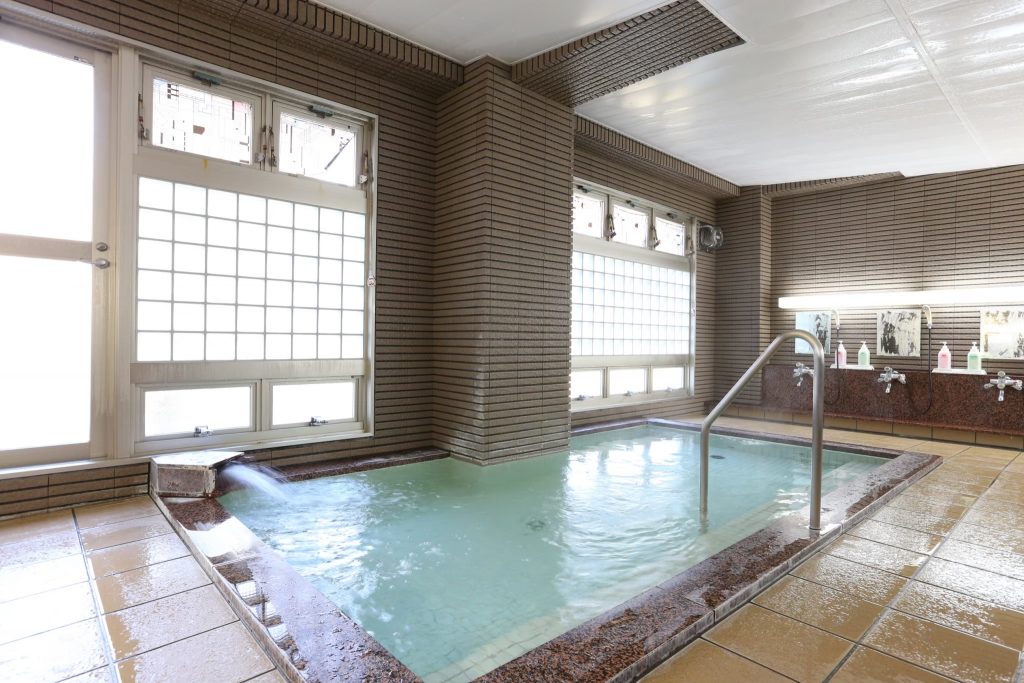
Any modern, Western-style hotel is almost certain to provide you with your own bathroom and toilet. Smaller, traditional guesthouses may however require you to share both toilets and bathing facilities. For Japanese people, this is completely normal and expected at smaller guesthouses, especially cheaper family-run ‘minshuku’.
More expensive ‘ryokan’ may well offer both rooms with a private toilet and bathroom and rooms with a shared toilet and bathroom. Rest assured that the Japanese obsession with hygiene and cleanliness means that shared facilities are typically kept in good condition. In order to maintain that standard, guests are asked to clean-up after themselves and be mindful of the comfort and expectations of other guests. This option won’t appeal to everyone so if you are uncomfortable with the idea of sharing, make sure to check your room details carefully before booking.
ADDITIONAL CHARGES / SURCHARGES
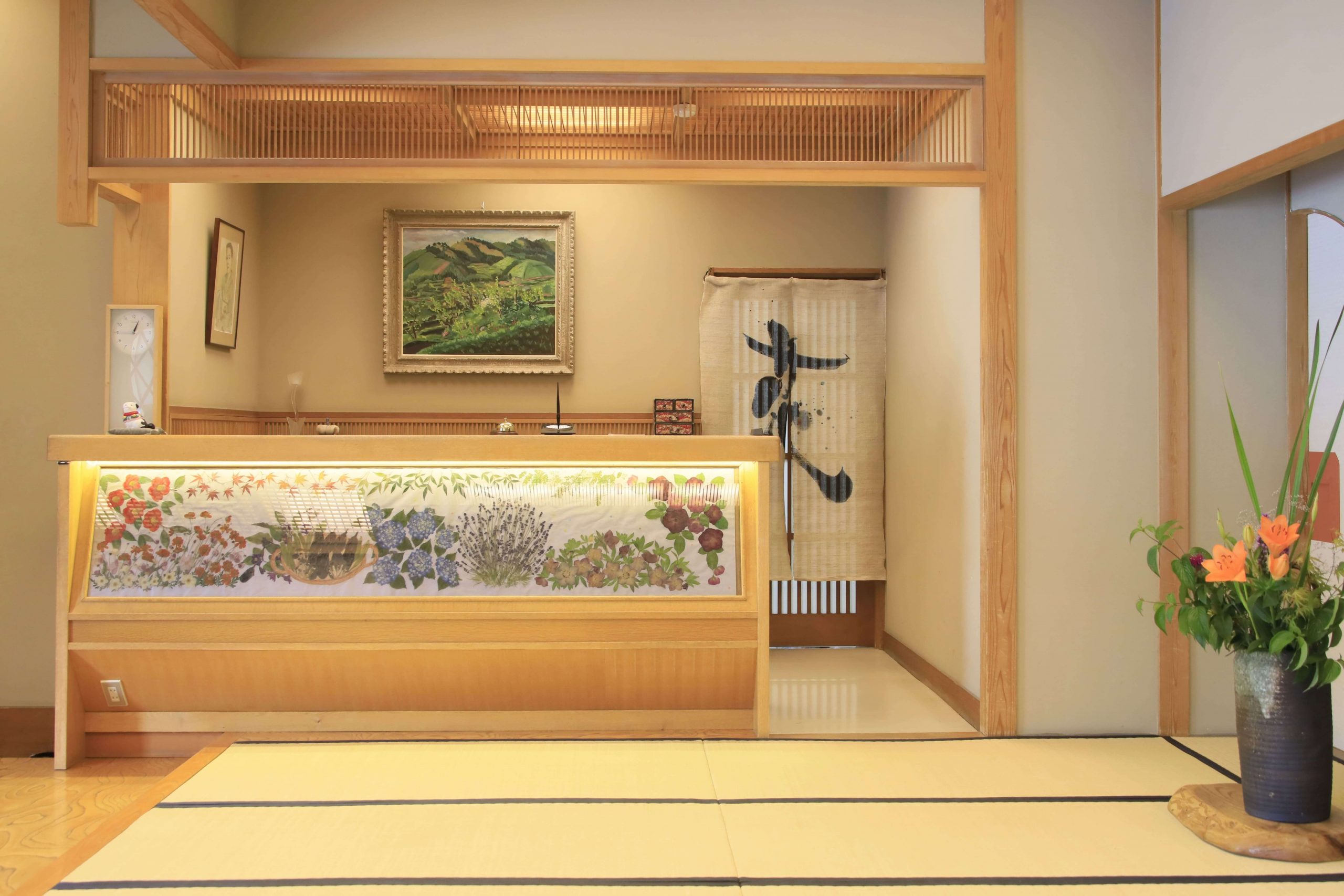
International visitors can sometimes get caught-out by charges and surcharges that are common in Japan starting with the price of the room. The more traditional types of accommodation in Japan, such as ‘ryokan,’ typically charge per guest rather than per room. This stems from their provision of meals, ‘yukata’ (light kimono) and other services for each guest i.e. the greater the number of guests, the greater the service they need to provide. As a result, ryokan and some other hotels charge person guest. When booking your accommodation make sure to check whether the price is per room or per guest, particularly when opting to pay in-person.
Some hotels – again, most typically ‘ryokan ‘– will have surcharges that apply to some guests. The most common example is surcharges that apply to young children who will not be charged for inclusion on booking websites but instead, are subject to an additional charge upon check-in or check-out. Make sure to read the fine print and check in advance when traveling with children.
Additional charges might apply to use of private ‘onsen’ (hot spring) facilities, ‘onsen’ tax and other miscellaneous charges. These are all common and are typically regulated by the specific municipality you are staying in.
COMMON MISUNDERSTANDINGS
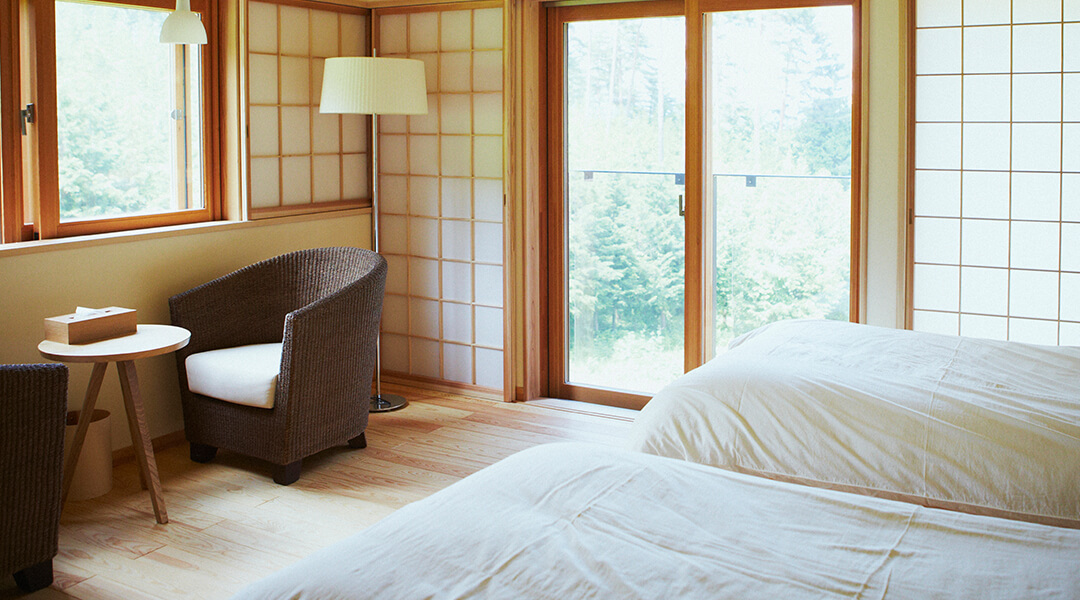
Most operators in Japan are honest allowing you to book your accommodation with confidence or concern that you won’t get what you are paying for. Having said that, it’s worth being aware of a couple of common misunderstandings that tend to pop-up between international visitors and accommodation operators:
Sharing your bed with your child: travellers with children are often caught-out by the requirement to share a bed with their child – despite having included the total number of guests at time of booking! This most commonly occurs at hotels in large cities, particularly in congested areas around train stations. It is simply a matter of limited floor-space and that many hotels, especially business hotels, are not designed for families. The hotel assumes the parent knows this and is happy to sleep in the same bed as their child – something which is common for Japanese when traveling with kids – so make sure to check in advance. Avoid business hotels and if necessary, send an email to check the bedding arrangement in advance.
Non-smoking rooms: while more and more accommodation in Japan is now completely non-smoking, some hotels, ‘ryokan’, pensions and ‘minshuku’ continue to offer smoking and non-smoking rooms. Frustratingly, some operators don’t see a problem with your non-smoking room having been used as a smoking room earlier in the week. While this thankfully more-or-less limited to cheaper accommodation and becoming uncommon, it can still occur. If this is important to you, avoid cheaper accommodation and choose operators with a strict non-smoking policy.
Curfew: some accommodation will have an evening curfew. Typically limited to some family-run businesses who want to lock their doors when they go to bed. Check with the owners of small ‘ryokan’, ‘minshuku’ pensions, hostels and ski lodges to confirm if there is a time you must come back by.
For more information about accommodation types and avoiding common problems, see our ‘Choosing Your Accommodation’ page.
BOOKING THROUGH AIRBNB: A WORD OF CAUTION
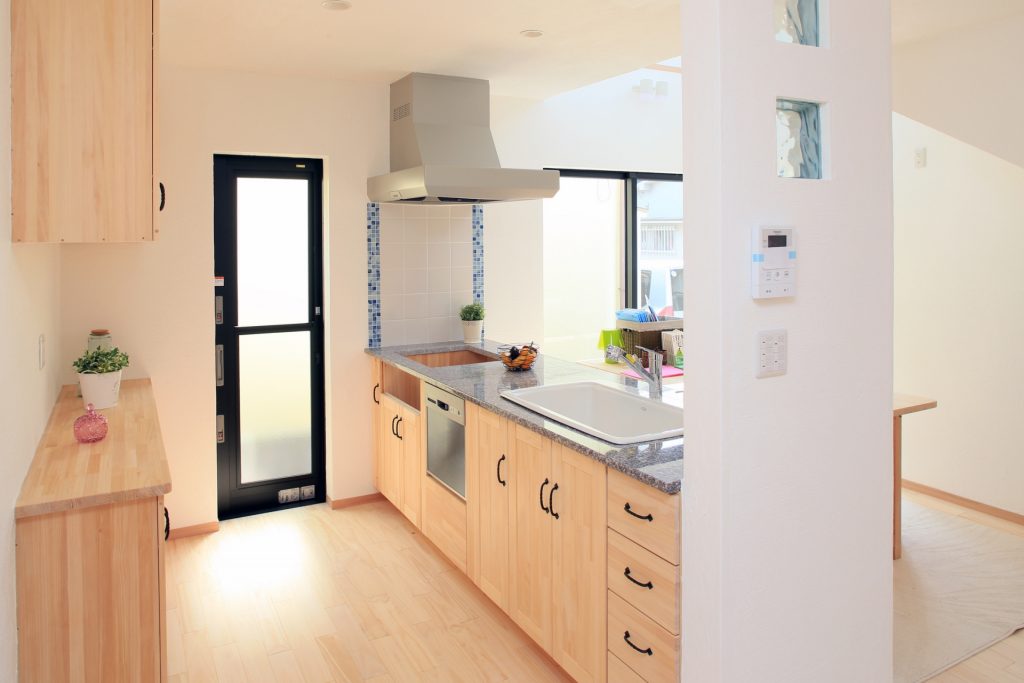
Airbnb exists in Japan and operates lawfully however it is more strictly controlled than in many other countries. Following a push by the hotel industry to shut the website down, a compromise was reached in mid-2018 that allowed hosts to rent out their property for 180 days per year and with only with the agreement of their neighbours. Should they wish to rent it out more than 180 days, owners have to go through the lengthy and expensive process of becoming registration as a guesthouse or should their neighbours object to their listing on Airbnb, they simply can’t do it to begin with. This regulation usually applies to host registering after its introduction in mid-2018 and importantly, puts the ultimate decision on legality in the hands of local governments i.e. they can choose to put additional requirements in place.
These regulations affect the host rather than you as the traveller however before you book accommodation through Airbnb, it is was trying to confirm that your host is operating lawfully. Be wary of hosts who are cagey about certain aspects of your accommodation or ask you not to tell anyone you are renting through Airbnb. This will mostly likely occur in big cities where there have been countless complaints by tenants in apartment buildings who are correct in calling-out hosts that don’t have permission to operate. If your host asks you not to talk to other tenants or to tell them you are their friend, it’s a sign that something isn’t quite right and best not to book the property. Outside of large cities this is much less of a problem given the nature of rural and regional towns and villages where people know their neighbours and will most likely follow the rules and seek their agreement before listing their property.
2-Day Tour: Snow Monkeys, Samurai Experience & Zenkoji 'Shukubo' Stay
- Spots:
- Pick-up:
- Drop-off:




